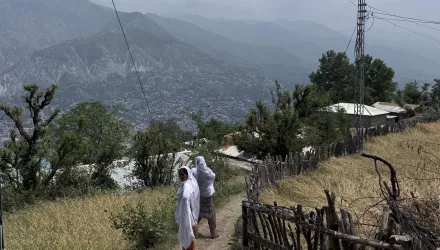The open warfare and shaken statehood that characterize Syria, Iraq, and Libya are the painful commemoration of the Arabs’ own 100 Years War for stable, legitimate statehood.
What the French, British and Italians did in Syria, Iraq and Libya after World War I led to the last 100 years of erratic patterns of development that have now erupted in open warfare within and among some countries.
Syria, Libya and Iraq are only the most dramatic examples of countries suffering from serious sectarian and other forms of warfare that could easily lead to the fracturing of those states into smaller ethnic units. Similar but less intense tensions define most Arab states. With the exception of Tunisia, the citizens of every Arab country have always been denied any say in defining the structure, values or policies of their state.
It is no surprise, therefore, that Syria, Iraq and Libya should be at once so violent, fractious and brittle. The capture of cities and territory across northern Iraq by the Islamic State of Iraq and Greater Syria (ISIS) symbolizes a common aspect of the fragmented nature of many Arab countries: the ruling party or family that runs the government is at war with well-armed non-state actors that reflect widespread citizen discontent with the power and policies of the central state. The brittle Arab state is not simply melting away, as happened in Somalia over the last two decades; rather, the state in many cases has become just one armed protagonist in a battle against several other armed protagonists among its own citizens.
The novelty of Iraq today, as with Syria to a lesser extent, is the presence of fighters from many other countries who have joined the fray, because the borders of the country have largely been erased by their own lack of legitimacy in the eyes of the citizens. So in this sense ISIS is a greater threat in the short run than other such militant sectarian movements, because it controls territory that provides a base of operations; it enjoys fiscal resources (oil, bank robberies, commercial routes); it attracts fighters from abroad who have no relationship to the local people under their control; it operates as a hybrid between a guerrilla force and a formal army; and, it explicitly challenges the state-based system of countries that we inherited from the spoils of World War I.
The world has never seen such a phenomenon as this post-state territory of deterritorialized individual fighters whose only principles are anchored in an ancestral vision of religious dictates. Groups such as ISIS have no future in the Middle East. But they will be a major problem for some years to come, until legitimate statehood and efficacious governance take root. This has never really happened in most Arab states because of the ongoing lack of validation of all states by their own people.
The battle now taking place in Syria, Libya and Iraq is very complex and will continue because it combines elements of wars of independence, civil wars, attempts to redefine the borders and values of individual countries, and revenge movements against the mismanagement, sectarianism and harsh rule of the past half-century at least. Drone attacks and troops from the United States or Iran or any other foreign source will not have any significant impact on the multiple forces that drive the fighting and fragmentation in many Arab countries, and would probably only aggravate the violence.
Egypt, Tunisia, Yemen and Libya have all shown how hard it is to shape new governance systems in the wake of the ouster of their autocratic leaders, if there is no clear social contract that gives all citizens equal opportunities to reconfigure their state. Syria, Libya, Bahrain and Iraq have also indicated the willingness of many actors to use military force to maintain their rule or challenge the incumbent rulers.
The popular uprisings that erupted three-and-a-half years ago have exposed the lack of foundations for coherent statehood in several Arab countries, and in some cases led to a vacuum that has been filled by various fighting forces in Syria, Iraq and Libya. The groups that will tap the desires of indigenous communities to live in peace with one another will be the ones to emerge victorious. Until then, the region will have to endure many years of violence that will only end when ordinary people feel they have had the opportunity to engage in the two seminal state-building processes that they have always been denied – self-determination and genuine sovereignty.
ISIS and others like it reflect none of these sentiments, which is why they will not be part of the long-term scene in the region, despite their short-term prominence. Any response to ISIS should not focus on only restraining their advances, but rather on responding to the local citizens’ 100 years of unfulfilled desires for conditions that would promote their self-determination and sovereignty.
Khouri, Rami. “Arabs search for legitimate statehood.” Daily Star, June 18, 2014



